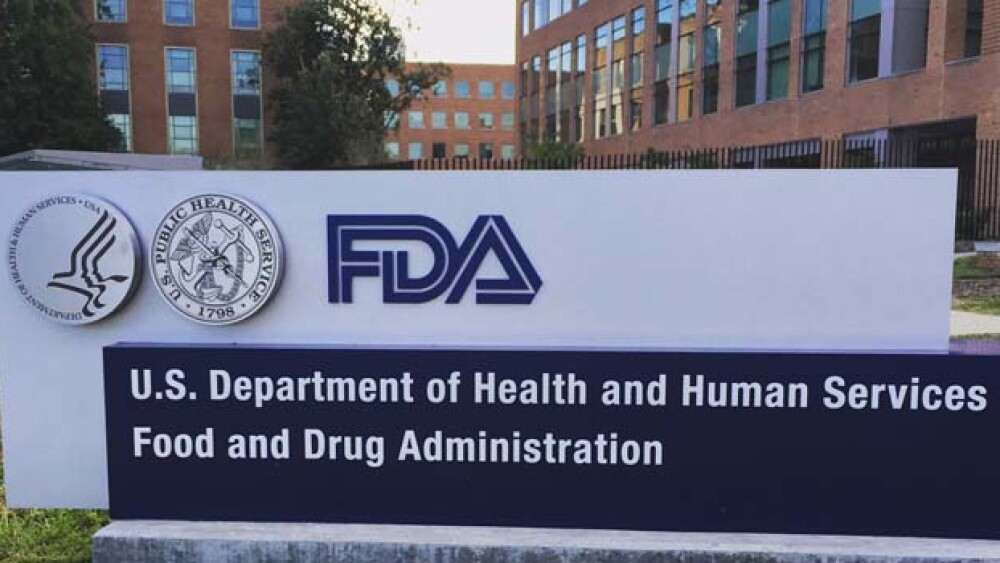This week has a number of approvals expected by the U.S. Food and Drug Administration. Let’s take a look.
This week has a number of approvals expected by the U.S. Food and Drug Administration (FDA). Sanofi and Regeneron Pharmaceuticals, in particular, have several approvals scheduled for at least two products for three different indications. Let’s take a look.
Regeneron and Sanofi’s Praluent for Decreased Cardiovascular Events and for Hyperlipidemia
Regeneron Pharmaceuticals and Sanofi’s Praluent (alirocumab) has been approved in more than 60 countries as an adjunct to diet and maximally tolerated statins for adults with heterozygous familial hypercholesterolemia (HeFH) or clinical atherosclerotic cardiovascular disease (ASCVD) who require additional decreases in LDL-C. Basically, for people with very high cholesterol levels who don’t respond to statins.
They have a target action date of April 28 for a supplemental Biologics License Application (sBLA) for the drug to update prescribing information to include the effect of Praluent in reducing the overall risk of major adverse cardiovascular events (MACE). MACE includes heart attack, ischemic stroke, death from coronary heart disease and unstable angina requiring hospitalization.
Praluent was approved for those indications in the European Union on March 15.
For a separate target action date, the two companies are awaiting the FDA’s decision on an sBLA for Praluent for first-line treatment of hyperlipidemia. The target date is April 29.
Praluent is a PCSK9 inhibitor. It prevents the binding of PCSK9 to the LDL receptor, which increases the number of available LDL receptors on the surface of liver cells to clear LDL. This results in decreased LDL-C levels in the blood.
Heron Therapeutics Non-Opioid Pain Drug
Heron Therapeutics, based in San Diego, has a target action date of April 30 for HTX-011. HTX-011 is a long-acting, extended-release formulation of the local anesthetic bupivacaine in a fixed-dose combination with meloxicam, an anti-inflammatory, to manage postoperative pain. It is the first and only dual-action fixed-combination product for postoperative pain and inflammation for a single administration at the surgical site.
The submission for the New Drug Application (NDA) was built on data from five Phase II clinical trials and two Phase III clinical trials that included over 1,000 patients undergoing five different surgical procedures. The drug was granted Breakthrough Therapy designation based on the results of Phase II trials and the Phase III trials that demonstrated the drug had significant decreases in pain intensity and the need for opioids through 72 hours post-surgery compared to placebo and bupivacaine solution, which is standard-of-care.
Nabriva’s Intravenous Contepo for Serious Infections, Including Urinary Tract Infections
Nabriva Therapeutics has a target action date of April 30 for Contepo for serious infections. It was upgraded from an earlier target date of June 30 after a clarification of the classification and subsequent expedited review period for the NDA submitted in October 2018. It was also granted Qualified Infectious Disease Product (QIDP) and Fast Track designations.
Contepo (Fosfomycin for injection) is a novel intravenous antibiotic with a broad spectrum of Gram-negative and Gram-positive activity, including against most multi-drug resistant (MDR) strains such as ESBL-producing Enterobacteriaceae. Intravenous Fosfomycin has been approved for over 45 years in Europe for a variety of infections. Contepo is a new dosing approach originally developed by Zavante, which Nabriva acquired.
Sanofi Pasteur’s Dengue Vaccine
Sanofi Pasteur has a target action date of May 1 for its BLA for its dengue vaccine. It was granted priority review by the FDA because it was the first and only prevention tool against the disease, including severe dengue.
Dengue is endemic in the U.S. territories of Puerto Rico and the U.S. Virgin Islands. Puerto Rico had the largest outbreak in 2010 when more than 12,000 cases were confirmed. Incidence stayed high in 2012 and 2013. People can get dengue up to four times and the second infection is generally worse than the first. The vaccine is called Dengvaxia. An advisory committee voted 6 to 7 against Dengvaxia in people aged 9 to 45 with one panelist abstaining. The vote on safety was tied 7 to 7. A positive vote for the vaccine covered children and adolescents aged 9 to less than 18. The committee voted 13 to 1 on the vaccine’s efficacy for the 9 to 17-year-old group and on safety, voted 10 to 4 in favor.
Dengvaxia has something of a cloud over it. It was pulled from the Philippine market in 2017 over safety issues and a pediatrician and medical researcher there has been indicted over the failed introduction of the vaccine. Rose Capeding, 63, was the former head of the dengue department of the Research Institute for Tropical Medicine (RITM). If convicted, she could face up to 48 years in prison.
Philippine prosecutors indicted Capeding and 19 others for “reckless imprudence resulting [in] homicide,” because they “facilitated, with undue haste,” the vaccine’s approval and rollout among Philippine children.





